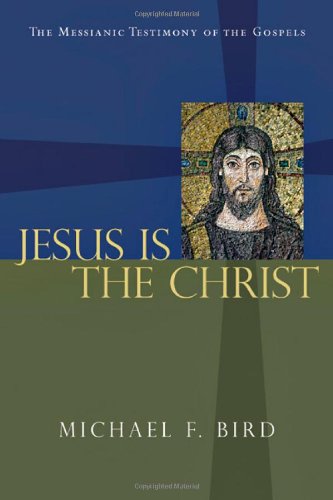The biblical writers’ view of the gospel is shaped by God’s covenants announced to Israel in the Old Testament, especially those established with Abraham and David.![]()
This purpose of this post is simple. I want to highlight the frequency with which God’s covenants frame the New Testament’s gospel presentations.
The Davidic Covenant
The gospel is summarized with reference to the Davidic covenant. For instance, in 2 Timothy 2:8, we read,
Remember Jesus Christ, risen from the dead, the offspring of David, as preached in my gospel.
When Paul succinctly summarizes the gospel to Timothy, of all the things he could mention, it is intriguing that he says “the offspring of David.”
Also, see Romans 1:1–4,
Paul, a servant of Christ Jesus, called to be an apostle, set apart for the gospel of God, which he promised beforehand through his prophets in the holy Scriptures, concerning his Son, who was descended from David according to the flesh and was declared to be the Son of God in power according to the Spirit of holiness by his resurrection from the dead, Jesus Christ our Lord.
As I’ve discussed in a previous blog series, God promised to be a “father” to David’s descendent, who would thus be considered God’s “son.” (2 Sam 7:13–14; 1 Chron 17:13; cf. Heb 1:5; 5:5). Likewise, in Psalm 2, God’s “son” is the Christ, the “anointed one,” Israel’s King (Ps 89:20–27).
In the book of Acts, the disciples’ gospel presentations squarely focus on the fulfillment of the David covenant. See Acts 2:24–36; 4:25–27; 13:32–41; 15:15–17. It would be worthwhile to spend time reviewing these passages on your own.
Acts 13:32–33 is particularly interesting:
And we bring you the good news [εὐαγγελιζόμεθα] that what God promised to the fathers, this he has fulfilled to us their children by raising Jesus, . . . .
Here, the gospel is explicitly stated as the message that God has fulfilled his promises (esp. those given to David, vv. 33ff).
In addition, one needs only to read the four Gospels. They routinely emphasize and reiterate Jesus’ identity as David’s son, the Christ, the King of Israel.
On this topic, see Michael Bird’s Jesus is the Christ.
Abrahamic Covenant
Gal 3:8 is the most obvious statement equating the gospel with God’s covenant with Abraham:
And the Scripture, foreseeing that God would justify the Gentiles by faith, preached the gospel beforehand to Abraham, saying, In you shall all the nations be blessed.” (Gal 3:8 ESV)
In Luke’s Gospel, observe how Zechariah summarizes what God was doing in the events surrounding John’s birth. In Luke 1:68–75 make reference both to Abraham and to David:
Blessed be the Lord God of Israel, for he has visited and redeemed his people and has raised up a horn of salvation for us in the house of his servant David, as he spoke by the mouth of his holy prophets from of old, that we should be saved from our enemies and from the hand of all who hate us; to show the mercy promised to our fathers and to remember his holy covenant, the oath that he swore to our father Abraham, to grant us that we, being delivered from the hand of our enemies, might serve him without fear, in holiness and righteousness before him all our days.
The Gospels frequently proclaim Christ’s identity in relation to Abraham. (cf. Matt 1:1).
The New Covenant
Finally, Paul uses the “new covenant” in 2 Cor 3 to explain the gospel in 2 Cor 4. The gospel in 2 Cor 4:3–4 achieves what the God accomplishes through the Spirit, promised by the new covenant in 2 Cor 3:5–18.
In Ezekiel 36:26–28, the prophet summarizes the essential content of new covenant (cf. Jer 31:31–34). Chapter 37 elaborates on the significance of these promises. Intriguingly, we find that God fulfills his promise to David. One could argue that there are indirect echoes to the Abrahamic covenant (cf. vv. 12, 19. 25).
I am not making an exhaustive argument in this post. A number of details could be added. I merely highlight a number of passages in order to show how centrality the covenant theme is to a biblical understanding of the gospel.
In coming posts, I will explain why Paul is able to say the Abrahamic covenant IS the gospel.
(This post is part of a series introducing my new book One Gospel for All Nations: A Practical Approach to Biblical Contextualization. For other posts in the series, click here.)
Photo Credit: Creative Commons 2.0 search













